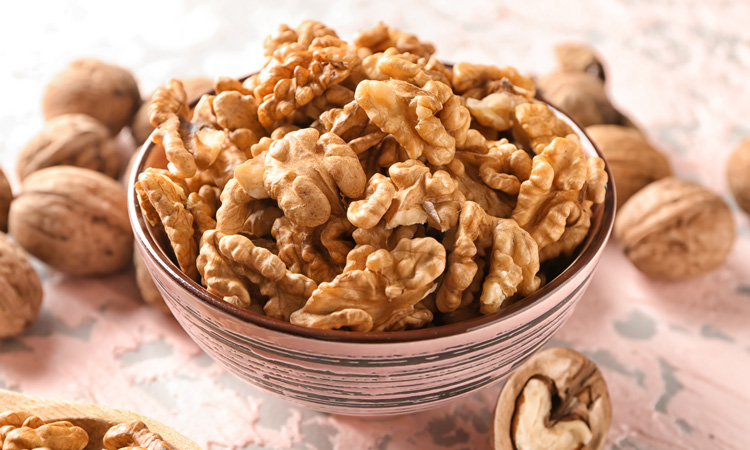Walnut consumption linked to health and longevity in women, says study
- Like
- Digg
- Del
- Tumblr
- VKontakte
- Buffer
- Love This
- Odnoklassniki
- Meneame
- Blogger
- Amazon
- Yahoo Mail
- Gmail
- AOL
- Newsvine
- HackerNews
- Evernote
- MySpace
- Mail.ru
- Viadeo
- Line
- Comments
- Yummly
- SMS
- Viber
- Telegram
- Subscribe
- Skype
- Facebook Messenger
- Kakao
- LiveJournal
- Yammer
- Edgar
- Fintel
- Mix
- Instapaper
- Copy Link
Posted: 26 February 2020 | Sam Mehmet (New Food) | No comments yet
In this study, the researchers looked at data from 33,931 women in the Nurses’ Health Study (NHS) to evaluate the association between nut consumption and overall health and well-being in ageing.


According to a new epidemiological study, women in their late 50s and early 60s who consumed at least two servings of walnuts per week had a greater likelihood of healthy ageing compared to those who did not eat walnuts. After accounting for various factors that could impact health in older adults, such as education and physical activity, walnuts were reportedly the only nut associated with significantly better odds of healthy ageing.
In this study, which was supported by the California Walnut Commission, “healthy ageing” was defined as longevity with sound mental health and no major chronic diseases, cognitive issues or physical impairments following the age of 65.
Previous research from primary investigator Dr. Francine Grodstein, formerly of Brigham and Women’s Hospital, has found that eating walnuts may have a positive impact on reducing the risk for physical impairments in older adults as well as cognitive decline. Additionally, others in the same research group have found decreases in cardiovascular disease and type 2 diabetes – all conditions that become more common as we age.
As part of this study, between 1998-2002, over 33,931 female nurses in the NHS were asked about their diet (including total nut consumption); evaluated for chronic diseases (such as cancer, heart attack, heart failure, stroke, type 2 diabetes and Parkinson’s disease); and assessed for memory concerns, mental health and physical limitations (including daily activities like walking one block, climbing a flight of stairs, bathing, dressing oneself and pushing a vacuum cleaner). Of the study participants, 16 percent were found to be “healthy agers,” defined as having no major chronic diseases, reported memory impairment or physical disabilities as well as having intact mental health.
Although previous research has connected a healthy diet, including walnuts, to better physical function among older men and women, this study only included women. More research is said to be needed to understand if these results hold true among men. Additionally, participants were not assigned to eat walnuts or other foods; they were simply asked about their dietary choices. It is possible that subjects misreported their dietary intake since this information was collected by questionnaires. As an observational study, this does not prove cause and effect. However, this research aims to shed light on simple habits that can influence health during later years in life – such as eating walnuts.







